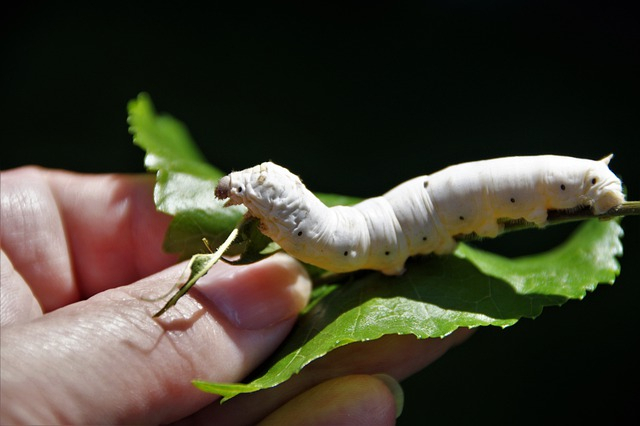As the Coronavirus cases continue to rise in several countries, a professor from Kyushu University, Takahiro Kusakabe, along with his team of researchers are working to develop a COVID-19 vaccine using silkworms.
Kusakabe said that in a building on the Kyushu University campus in western Japan's Fukuoka, the researchers have around 250,000 silkworms of about 500 different phylogenies (family lines).
Unique Vaccine

Kusakabe and his team have mapped out a research plan to develop an effective and unique vaccine against the SARS-CoV-2. He said the development of an oral vaccine for the Coronavirus and starting a clinical trial in 2021 is possible.
As per the Japanese researchers, genes of the protein that form the outer "spikes" of SARS-CoV-2 are incorporated into the virus and injected into a silkworm for the study purpose. Then the virus was injected into the silkworm's cells.
Almost after four days, the researchers noticed that the spike proteins that can serve as the key material to develop a vaccine are getting produced in large quantities. These proteins were then removed and refined. The researchers found that after the refinement process, the spike proteins can be used to create a vaccine that can be administrated via injection. Kusakabe said among the thousands of lab insects, the team has found one type of silkworm, which can "efficiently manufacture the proteins."
Japan Vaccine Efforts
Anges, a biotechnology company established by Osaka University researchers in Japan is developing a DNA vaccine. The vaccine will send the gene of the spike protein into the human body and induce the body to create a protein and boost the immunity against Coronavirus.
But rather than the human body, Kusakabe and his team are aiming to produce spike proteins using silkworms. They claimed that this process would be safer than attenuated vaccines. The lead researcher has planned to collaborate with the university's School of Pharmaceutical Sciences to test the vaccine on animals.

As per Kusakabe, he wants to inject the spike protein, extracted from silkworms, into mice to see if it creates antibodies to block the SARS-CoV-2 infection. Then he will check whether the antibodies can actually block the virus from infecting cells. He believes that if everything goes well then the animal testing would be completed by the end of 2021 and then the clinical trials, involving humans candidates, can start.
Kusakabe said, "Using silkworms, you can shorten the time it takes to produce candidate substances for the vaccine to as little as about 40 days." He added that the cost to produce this COVID-19 resistant vaccine will also be reduced as the method doesn't need major equipment.
As per a report, the team of Japanese researchers has come close to complete a COVID-19 diagnostic drug using the spike proteins. They also at the same time have been working to develop an oral vaccine using silkworm against the Coronavirus, which has infected over 47,000 people in Japan and killed more than 727,000 individuals globally.
However, the interesting part is this oral vaccine can be made by injecting a virus incorporated with genes of spike proteins into silkworm pupae. Many people in Asia, especially in China and South Asia region, as well as people in Latin America and Japan, tend to eat insects as a key source of protein, the Japanese experts have thought that those pupae could be ground into a powder to create tablets or capsules.
Kusakabe explained that since pupae do not have intestines, "their proteins are not destroyed by digestive enzymes when they are ground into a powder."








